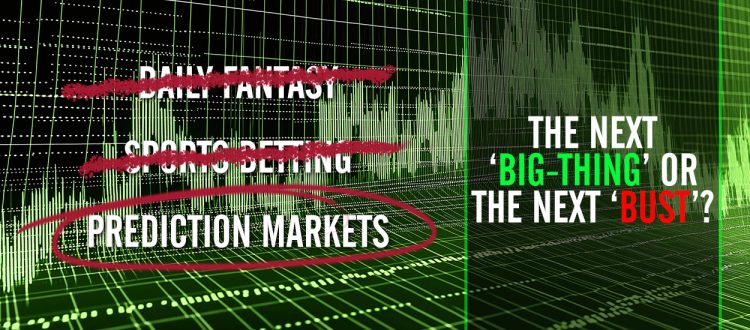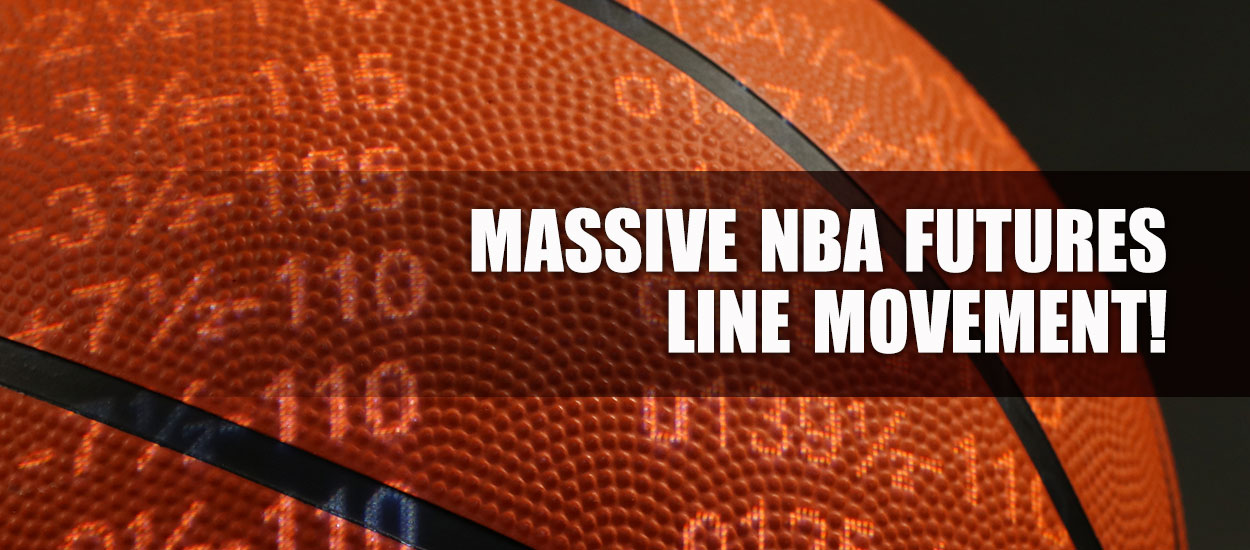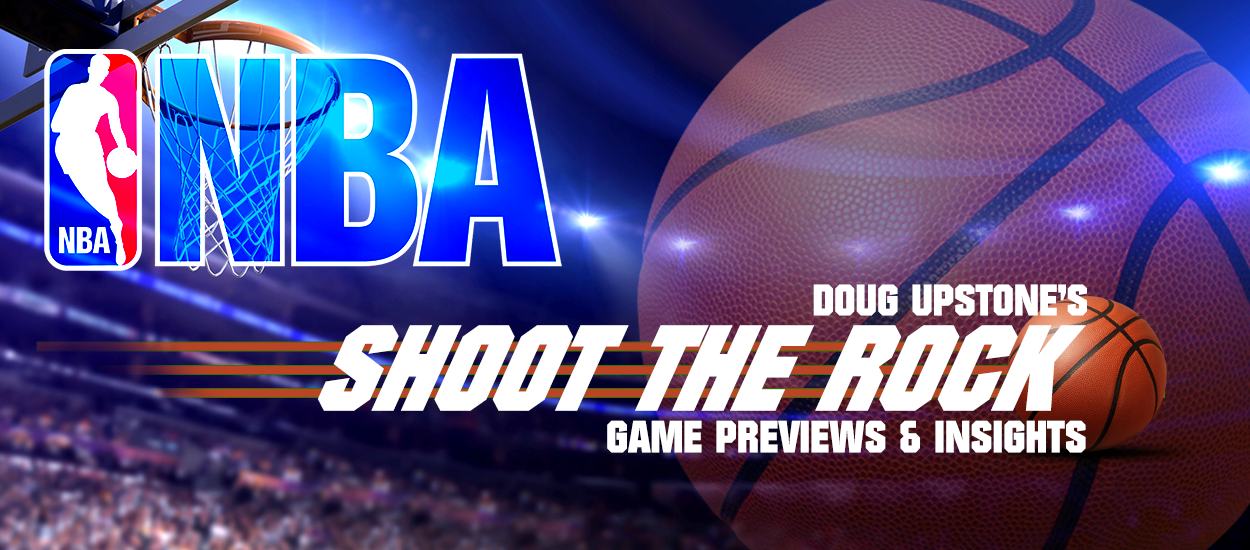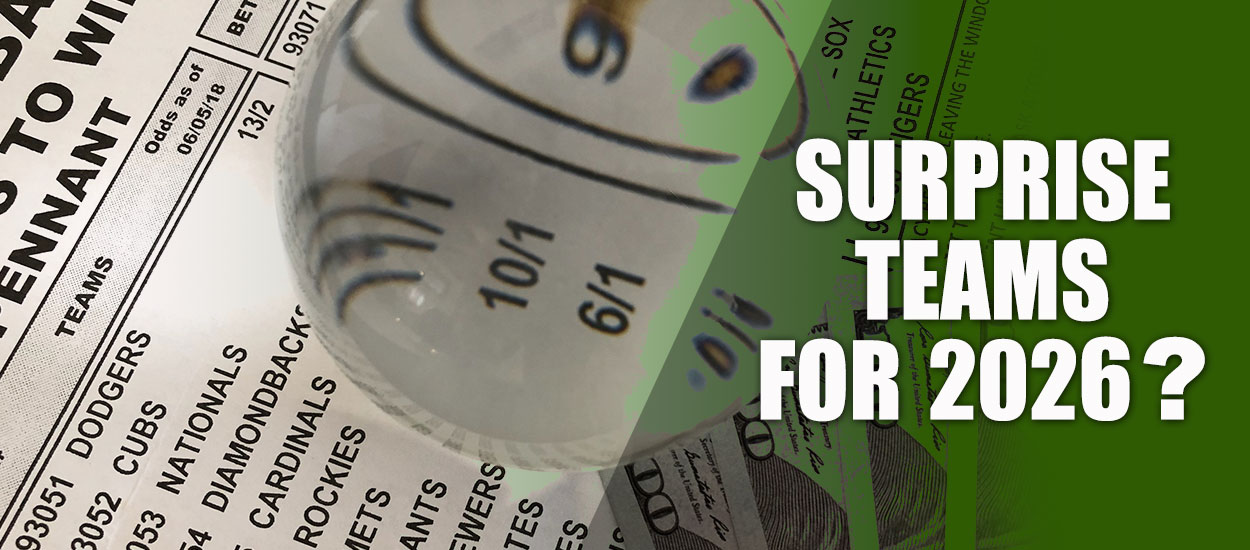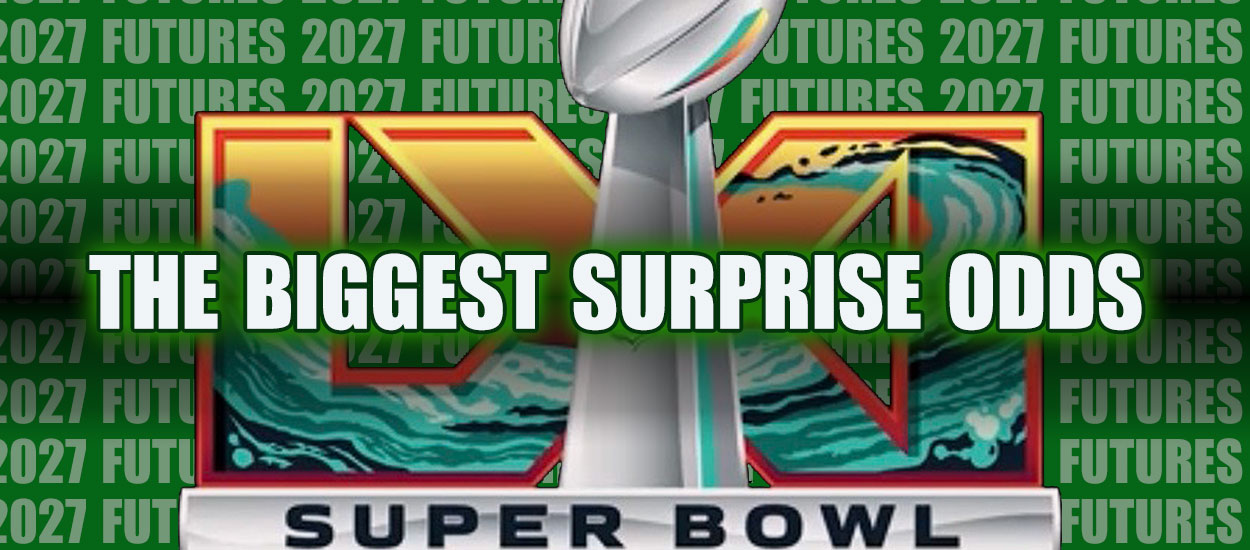Prediction markets are nothing new and yes, they are sports betting
One of the hot topics of late revolves around prediction markets. In one session at the SBC North America Conference called “Prediction Markets are Here to Stay,” the panelists argued back and forth whether prediction markets were really a form of sports betting and if so, whether they should be allowed to continue operating as is. The general consensus of those in attendance was that these markets are definitely some form of betting, but there was disagreement over what that meant and whether they were legal.
In many ways the arguments regarding prediction markets is similar to the arguments that were made in 2008 when DraftKings and FanDuel launched a DFS market that took advantage of the ambiguities in the rules of the UIGEA which allowed them to offer odds on sporting events that happened on the same day. It was clear to everyone following the UIGEA that the carve out in the UIGEA for fantasy sports was meant to apply to contests run by websites like Yahoo or The Sporting News that take place over a full season, but rules are rules and because there were no required timeline mentioned in the UIGEA, DFS became legal and DFS sites have operated unimpeded since.
For those unfamiliar with prediction markets, they are markets that allow people to trade contracts on future events using real money. The events are rated on a probability of 0 to 100 with the figure shown being the probability that the even would occur. So, a rating of 57 for one party in an election market means that the market predicts that party has a 57% chance of winning the election and the other party has a 43% chance of winning. Eventually, the event will settle and when it does the contracts will be worth 0 or 100. So, prediction markets are like trading stocks on the stock market, except the value is not based on profitability and some of the contracts will be worthless.
History of Prediction Markets in the US
The first widespread prediction market available to Americans was one called PredictIt founded in 2014 and run by a New Zealand non-profit company that partnered with the University of Wellington. The software and website were operated by Aristotle Inc. in Washington D.C. and each event was limited to 5,000 people with each individual total investment capped at $850.  In order to operate, the company had to get a no-action letter from the Commodity Futures Trading Commission (CFTC) indicating that the CFTC had no issue with the markets operated by PredictIt. The CFTC, however, did put in many regulations to provide them a way out. PredictIt eventually had over 27,000 traders prior to the 2016 election and the company was featured regularly in the U.S. media when PredictIt markets showed that Donald Trump was going to win the election despite Hillary Clinton having a big lead in the polls. So, when Trump did win, some media suggested that PredictIt was a more reliable source than pollsters. PredictIt continued operating until 2022 when the CFTC revoked its no-action letter, saying that PredictIt was violating terms of the letter and ordered them to shut down in the U.S. The University and Aristotle challenged that ruling and got an injunction against the CFTC, although the CFTC said the courts had no jurisdiction and consequently PredictIt pulled out of the U.S. and only continued operating for players elsewhere.
In order to operate, the company had to get a no-action letter from the Commodity Futures Trading Commission (CFTC) indicating that the CFTC had no issue with the markets operated by PredictIt. The CFTC, however, did put in many regulations to provide them a way out. PredictIt eventually had over 27,000 traders prior to the 2016 election and the company was featured regularly in the U.S. media when PredictIt markets showed that Donald Trump was going to win the election despite Hillary Clinton having a big lead in the polls. So, when Trump did win, some media suggested that PredictIt was a more reliable source than pollsters. PredictIt continued operating until 2022 when the CFTC revoked its no-action letter, saying that PredictIt was violating terms of the letter and ordered them to shut down in the U.S. The University and Aristotle challenged that ruling and got an injunction against the CFTC, although the CFTC said the courts had no jurisdiction and consequently PredictIt pulled out of the U.S. and only continued operating for players elsewhere.
In the meantime, other prediction markets did set up shop in the U.S., including Polymarket and Kalshi.
Polymarket, a blockchain based decentralized prediction platform that allows traders to bet on everything from sports to elections using smart contracts, was started in 2020. They were operating successfully in the U.S. until 2022 when the CFTC fined them $1.4 million and ordered them to stop taking U.S. customers, which they did. The company still operates elsewhere and was heavily featured in the news in the leadup to the 2024 U.S. Presidential election. While polls showed a close race, Polymarket indicated Trump had a higher than 80% chance of winning the 2024 election after the first debate in 2024 between Biden and Trump. The market still showed Trump as an overwhelming favorite to win the election after Harris became the nominee, while most polls showed it as a dead-heat and some even had Harris in the lead. Polymarket quickly became the darling of right-wing media like Fox News and Newsmax who were always featuring the prediction market in telecasts to suggest polls were wrong. Social media platforms like X also featured the Polymarket predictions. So, when Trump did indeed sweep all the swing states and pulled off the easy victory, Polymarket was hailed by many on the right as heroes and a more important indicator than polls, while many on the left cried foul and suggested that prediction markets could somehow be rigging the voting although that was never proven.
And Kalshi, which set up in 2021, is a CFTC -regulated event exchange that offers everything from predicting GDP growth, to unemployment rates to the Oscars.  Despite being CFTC regulated Kalshi got into a dispute when they tried to offer odds on House and Senate seats in 2023 and the CFTC told them no as it violated the boundaries of what they could offer. Kalshi appealed that ruling saying that the CFTC overstepped its authority and last year a D.C. court ruled in favor of Kalshi. The CFTC said it would be appealing the D.C. ruling but just this month they decided to forego the appeal which effectively makes election betting legal using Kalshi or any future prediction markets in the U.S.
Despite being CFTC regulated Kalshi got into a dispute when they tried to offer odds on House and Senate seats in 2023 and the CFTC told them no as it violated the boundaries of what they could offer. Kalshi appealed that ruling saying that the CFTC overstepped its authority and last year a D.C. court ruled in favor of Kalshi. The CFTC said it would be appealing the D.C. ruling but just this month they decided to forego the appeal which effectively makes election betting legal using Kalshi or any future prediction markets in the U.S.
So What?
For those like me who have been involved in the industry for over two decades, as well as those who have bet offshore since internet betting became commonplace in the early 2000s, the question has to be what is the big hype about? Offshore sports books have been offering odds on elections, the Oscars and whether the DOW or NASDAQ would be up or down at the end of the day for decades and sportsbooks from the UK have legally been offering odds on elections worldwide since betting was declared legal there in the 1960s.
Along with elections, players using UK books can bet on things like the next Pope and whether it will be snowing in New York City on Christmas Day. Sure, those aren’t technically prediction markets, but because they occur over such a long period, they are virtually the same as the market or probability of the event occurring will change regularly. And every site now offers a cash out option which technically makes it exactly the same as a market that one can buy or sell. If one bet on Titanic to win the Best Picture Oscar at 2/1 in November and cashed out when Titanic was 1/10, how is that different than a prediction market?
And with regards to sports betting, futures markets have been around for over 25 years. World Sports Exchange (WSEX), the now defunct Antiguan sportsbook, was founded in 1997 by Jay Cohen, Steve Schillinger and Haden Ware who were traders on the Pacific Stock Exchange. They decided that the same way contracts could be traded on the stock market, the same premise could be applied to trading futures on sports teams. They set up shop in Antigua and started offering exchanges that allowed bettors to purchase contracts on teams to win the Super Bowl, NBA championship, a golf tournament, World Series MVP etc. and as the season or tournament went on those contracts could be sold back at a price to guarantee a profit as the new odds dictated based on how teams or players were performing or they could be held until the event settled. WSEX of course offered regular sports betting and future betting without using the exchange but the sports exchange was their bread and butter.
Many would say the difference between what WSEX did and prediction markets is that WSEX was a traditional bookmaker using the opinions of the traders to set the lines, while prediction markets use crowdsourcing to move the lines. In better words, the bettors are the traders themselves and because there are so many of them, all doing their own research, the opinions would be more accurate than a traditional bookmaker. Whether that’s true or not is up for debate, but betting exchanges such as Betfair, Betdaq and Matchbook also use the large volume of bettors to set the lines and Betfair has almost a million customers and in 2013 peaked at 4 million customers. The exchange itself takes no interest in who wins or loses and only gets a commission based on the winning trades, similar to how prediction markets make their money. So, at the beginning of the year a bettor may ask for a market on the Kansas City Chiefs to win the Super Bowl and will set the odds for what they would like to receive from anyone willing to take the other side. So, the Chiefs could have odds of 5.0 (4/1) to win the Super Bowl at the beginning of the year and bettors will buy or sell the team as the year progresses. And if say they win the first 5 games of the year the bettors may move the line to odds of 3.5 (5/2) for anyone who wants to bet them to win the super bowl or 1.4 (2/5) for anyone willing to bet they won’t win the Super Bowl. And with zero vig built in, it’s clear that Betfair bettors deem the Chiefs to have a 28% chance to win the Super Bowl. Consequently, it’s no different than a prediction market, just disguised in a different way.
Of course, the predictions are still best guesses and prediction markets are often wrong. In 2019 and early 2020 Polymarket showed a large probability that Trump would win the 2020 election but when Covid hit the U.S. much of the public blamed Trump for all the state of the economy and the high number of deaths and the markets started moving in favor of Joe Biden. 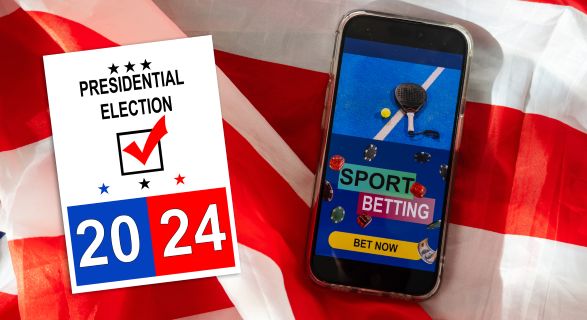 So, the prediction market in that case was wrong early on, although it eventually was right predicting a Biden win. But, in that year the polls were more accurate than the Polymarket figure. And in January of this year in the Canadian election, the Conservatives had odds as low as 1.15 (1/7 odds) of winning the election at Bet365 and some published prediction markets showed the Conservatives as a sure thing to win. But neither Bet365 or the markets could predict that in January Justin Trudeau would resign and the Liberals would elect a more likeable candidate who vowed to stop Trump from making Canada the 51st state and who was seen as a better option than the Conservative to take on Trump and fight the tariffs he laid on the country. Suddenly, people who were on the fence indicated they would vote Liberal and those who said they probably wouldn’t vote decided they would vote for Liberal Mark Carney. As a result, the Liberals went from a 20% chance in January to more than an 80% chance when the election was called. It doesn’t mean the prediction markets or Bet365 were wrong or right, but rather circumstances changed to affect the odds and probabilities.
So, the prediction market in that case was wrong early on, although it eventually was right predicting a Biden win. But, in that year the polls were more accurate than the Polymarket figure. And in January of this year in the Canadian election, the Conservatives had odds as low as 1.15 (1/7 odds) of winning the election at Bet365 and some published prediction markets showed the Conservatives as a sure thing to win. But neither Bet365 or the markets could predict that in January Justin Trudeau would resign and the Liberals would elect a more likeable candidate who vowed to stop Trump from making Canada the 51st state and who was seen as a better option than the Conservative to take on Trump and fight the tariffs he laid on the country. Suddenly, people who were on the fence indicated they would vote Liberal and those who said they probably wouldn’t vote decided they would vote for Liberal Mark Carney. As a result, the Liberals went from a 20% chance in January to more than an 80% chance when the election was called. It doesn’t mean the prediction markets or Bet365 were wrong or right, but rather circumstances changed to affect the odds and probabilities.
Are Prediction Markets for Sports Legal or No?
That brings us back to the original question, “Are prediction markets legal and are they really just a form of sports betting disguised as something else?” The answer should unequivocally be yes to both. They are clearly no different than most forms of sports betting and with the CFTC decision they can now legally take bets on the elections. But fair is fair and FanDuel, DraftKings and other licensed and regulated sportsbooks in the U.S. will demand the right to offer the same markets that Kalshi does. Just because it is deemed a prediction market rather than a sports bet, the bet and outcome are the same so there’s no reason FanDuel shouldn’t be allowed to offer odds on the 2026 midterms or next year’s Oscars if it can be done on Kalshi.
That said, the ability to offer the bets should still be left up to the states, so if the 31 states that currently don’t allow betting on anything but sports decide they still want that to be the case, they should have the right to block betting on events like the Oscars and elections at both sportsbooks and Kalshi. And like with DFS, the states should have the right to block prediction markets from operating in their states if they don’t want to regulate it. Of course, some states may welcome prediction markets and open them up not only to Kalshi but to any sportsbook that wants to have a separate prediction market.
Mind you, states most likely will want to treat them as another gambling vertical that requires a license to operate and require a tax be paid on all winnings. Currently companies like BetMGM pay a separate licensing fee for sports betting, casino and poker in states like New Jersey, Michigan or the province of Ontario, where the operate all three, so why not legalize prediction markets as just another gambling channel. The states may get pushback from the CFTC who still want prediction markets treated differently than sports betting, but the states should be ready for that fight.
The one issue with some more nefarious early prediction markets is that some threw caution to the wind and offered markets on things like if a president would be assassinated, if World War III will occur before the end of the decade, whether a specific celebrity will die of cancer, whether a hurricane will wipe out a city, etc. These have always been deemed as bets in bad taste and have always been shunned by sportsbooks, but some prediction markets don’t care and there should be a rule that under no circumstances will bets of those types be allowed.
So, are prediction markets here to stay? The answer is unequivocally, YES. Are they a form of sports betting? Again, the answer is clearly yes. But the question of whether the industry and the CFTC are willing to acknowledge it as such isn’t clear. But one thing is certain, these prediction markets are nothing new and the argument that prediction markets are more reliable than sportsbooks because they use a form of crowdsourcing to set the markets is pure folly. A good sportsbook with knowledgeable traders and a good algorithm will always have odds as good or better than any prediction market. After all, that is how they stay in business.
Read articles on sports betting and the North American gambling industry from Hartley Henderson here at GamblersWORLD.

